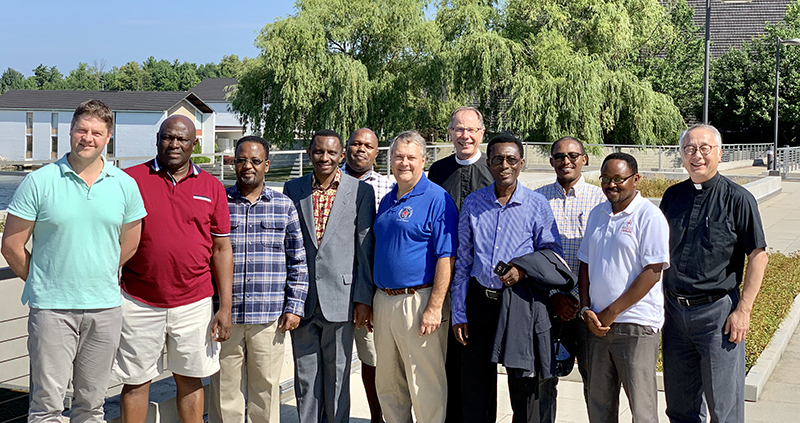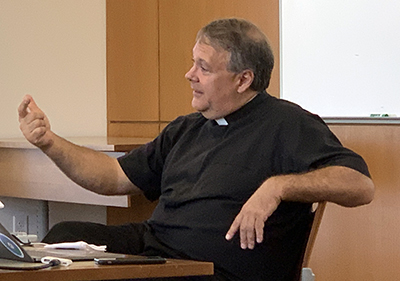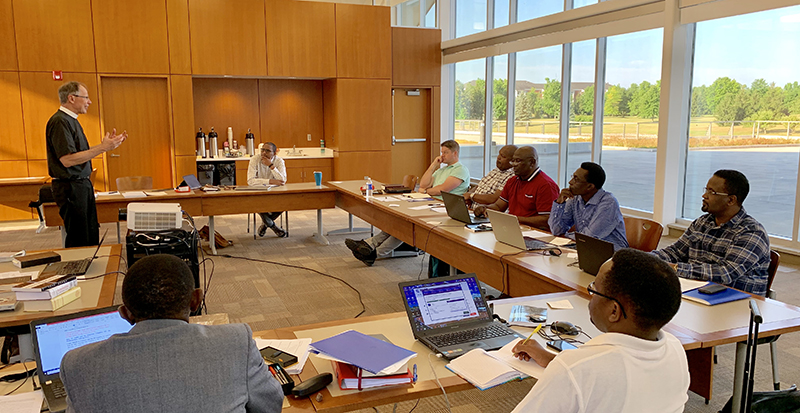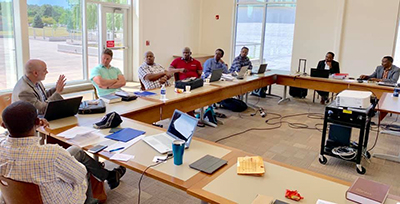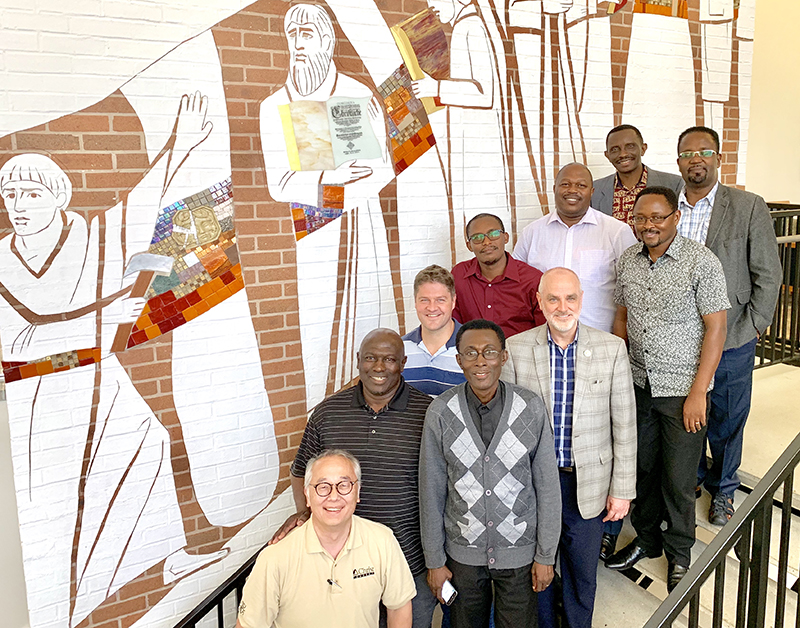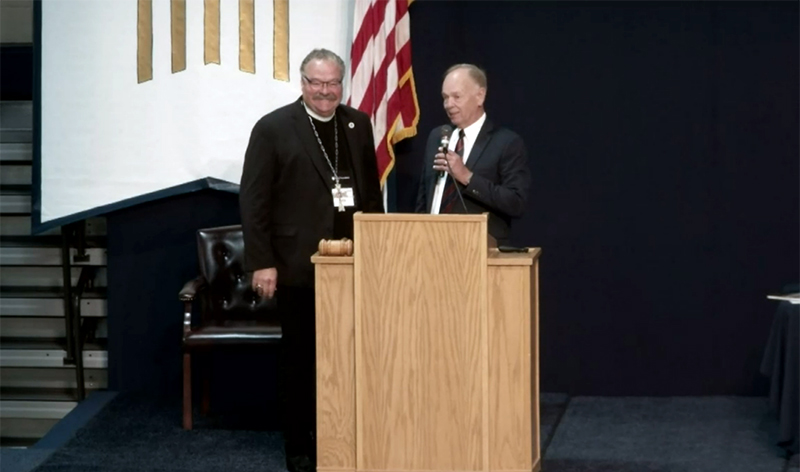
LCMS President Matthew Harrison and WELS President Mark Schroeder. (Image: Screenshot).
USA – The Wisconsin Evangelical Lutheran Synod (WELS) and the Evangelical Lutheran Synod (ELS) recently held their 2021 national conventions, and President Matthew Harrison of The Lutheran Church—Missouri Synod (LCMS) was present at both to bring greetings—the first LCMS President to do so in more than sixty years.
For almost a century, the LCMS enjoyed fellowship with both WELS and the ELS through the Evangelical Lutheran Synodical Conference. The middle of the twentieth century, however, saw the LCMS undergo a period of doctrinal controversy, leading the ELS to end fellowship in 1955 and WELS to do the same in 1961. WELS and ELS remain in fellowship together.
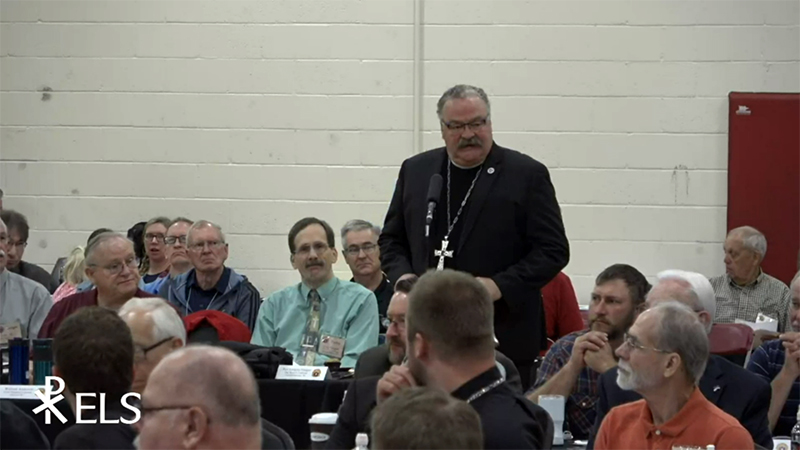
LCMS President Harrison addresses the ELS convention. (Image: Screenshot).
In his greetings to the two church bodies, President Harrison acknowledged the reasons why the ELS and WELS broke fellowship with the LCMS in 1955 and 1961. “It had to be done to avoid the tragic events which would play out in the history of the Missouri Synod in the next decades,” he said to the WELS convention. “Thankfully,” President Harrison noted in his remarks to the ESL convention, “the Lord granted us a new day,” with God leading the synod through the doctrinal challenges of the mid-twentieth century to reaffirm its allegiance to the authority of Scripture.
While the reestablishment of fellowship between the LCMS and the ELS and WELS is not currently on the horizon, President Harrison said he is grateful for renewed contact between the church bodies in recent years. Since 2012, the LCMS, WELS, and ELS have held annual informal discussions which have fostered greater understanding and goodwill between the churches. A 2015 report on these meetings highlighted the discovery of significant doctrinal agreement. Each church body has also adopted synodical resolutions encouraging continued discussions between the churches.
During his greetings, President Harrison also expressed condolences to the ELS on the sudden death of President John Moldstad, who went to be with the Lord on January 29, 2021. He gave thanks to God also for continued friendship and discussion with WELS President Mark Schroeder as well as new ELS President Glenn Obenberger.
The Lutheran Church—Missouri Synod is a member church of the International Lutheran Council (ILC), a global association of confessional Lutheran church bodies. The WELS and ELS are both members of the Confessional Evangelical Lutheran Conference (CELC). Member churches of the CELC, including WELS and ELS, recently joined the ILC, LCMS, and other Lutheran churches worldwide as signatories to a joint letter expressing concern over religious freedom concerns in Finland.
———————

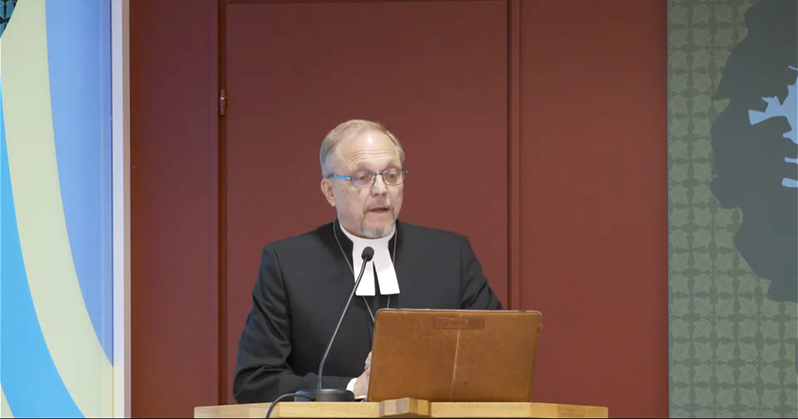
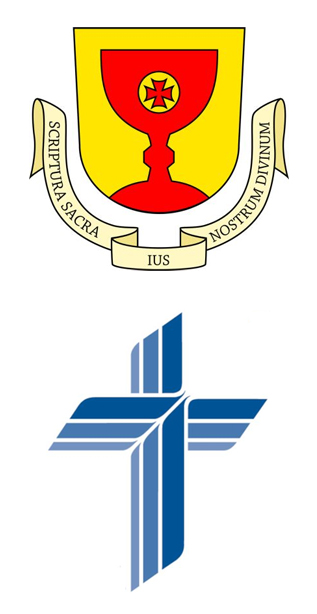 FINLAND – On November 14, 2020, the Evangelical Lutheran Mission Diocese of Finland (Suomen evankelisluterilainen lähetyshiippakunta – ELMDF) unanimously declared altar and pulpit fellowship with The Lutheran Church—Missouri Synod (LCMS). The decision came during the ELMDF’s annual Diocesan Assembly, held this year online as a result of the coronavirus pandemic. The LCMS for its part also expressed recognition of fellowship in a letter of greeting presented to the ELMDF gathering.
FINLAND – On November 14, 2020, the Evangelical Lutheran Mission Diocese of Finland (Suomen evankelisluterilainen lähetyshiippakunta – ELMDF) unanimously declared altar and pulpit fellowship with The Lutheran Church—Missouri Synod (LCMS). The decision came during the ELMDF’s annual Diocesan Assembly, held this year online as a result of the coronavirus pandemic. The LCMS for its part also expressed recognition of fellowship in a letter of greeting presented to the ELMDF gathering.
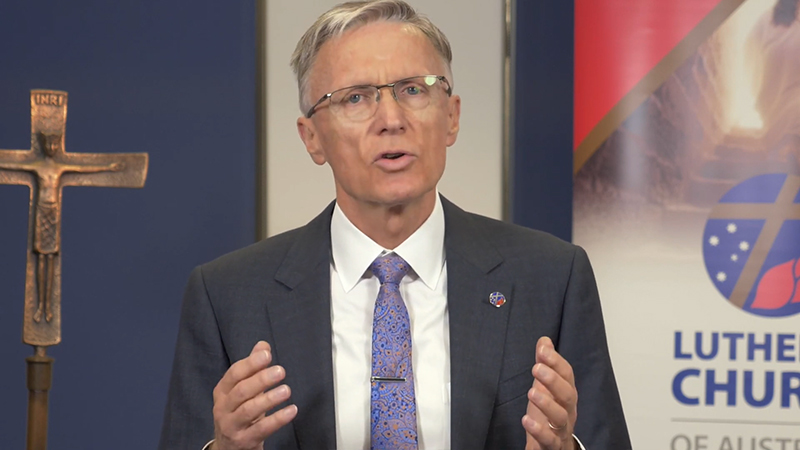
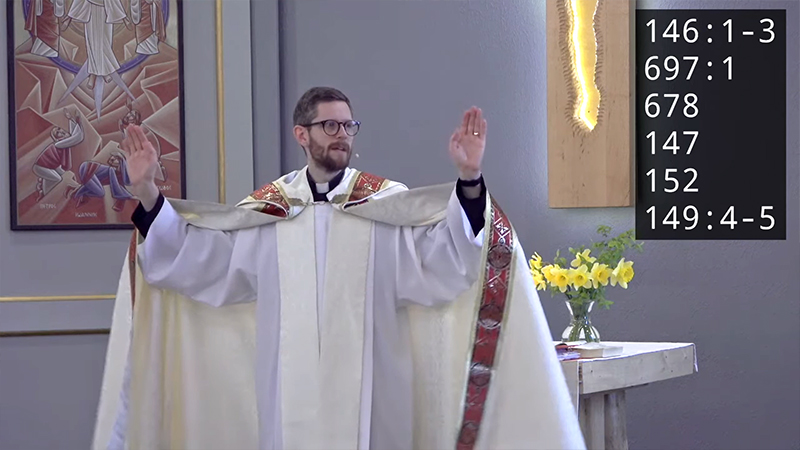
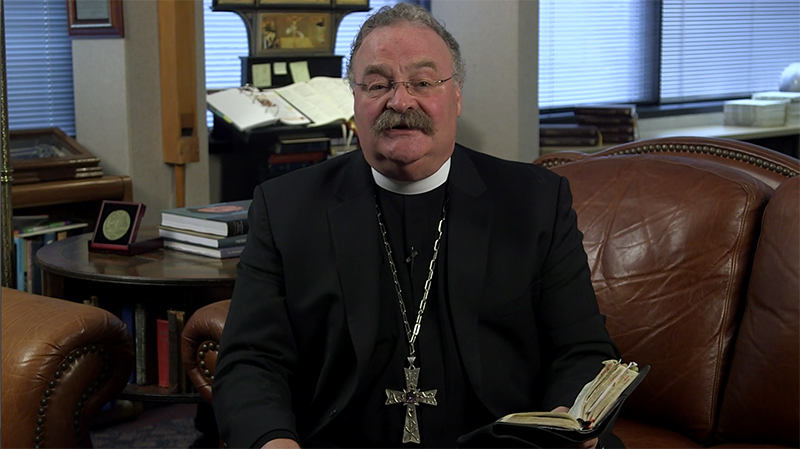
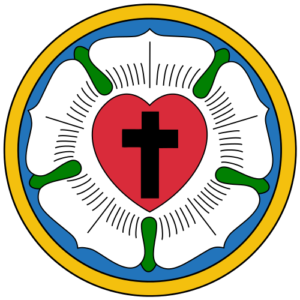 USA – The end of 2019 saw two regular interchurch meetings between North American Lutheran church bodies.
USA – The end of 2019 saw two regular interchurch meetings between North American Lutheran church bodies.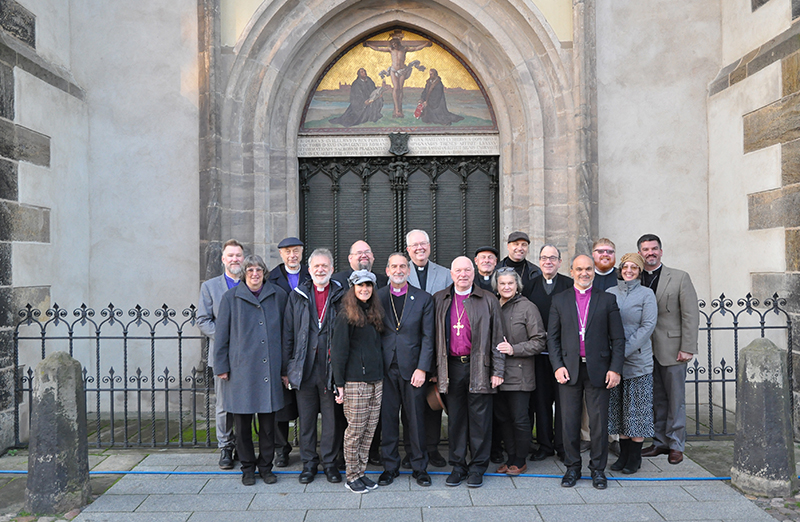
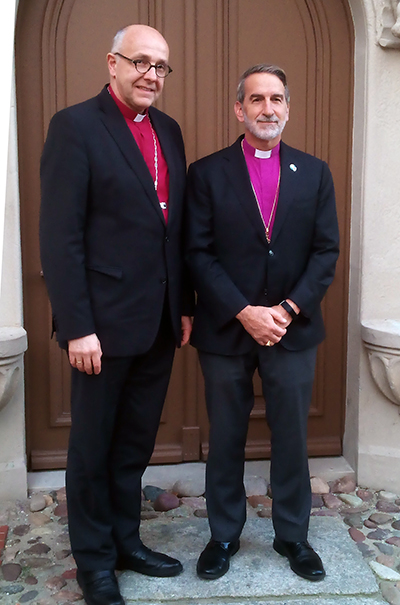
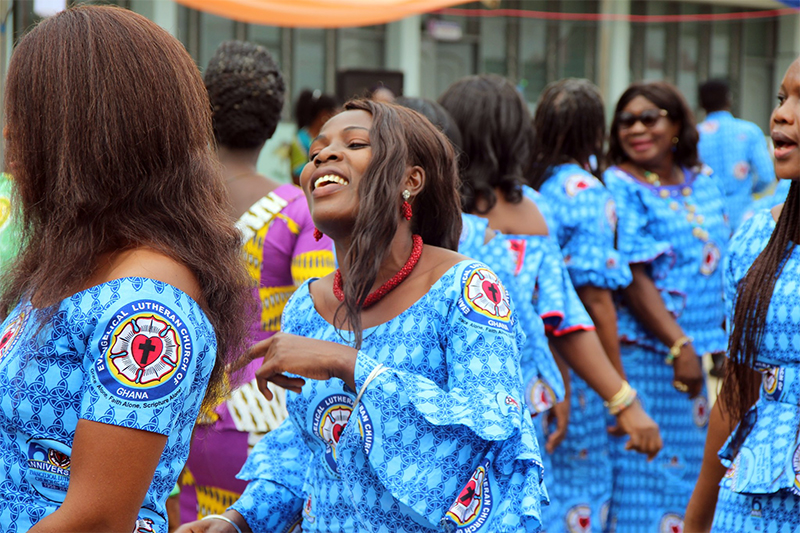
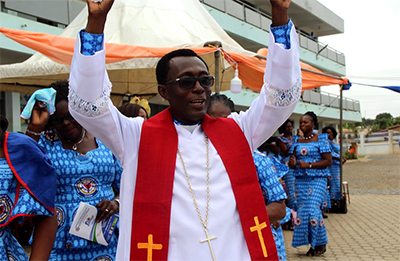
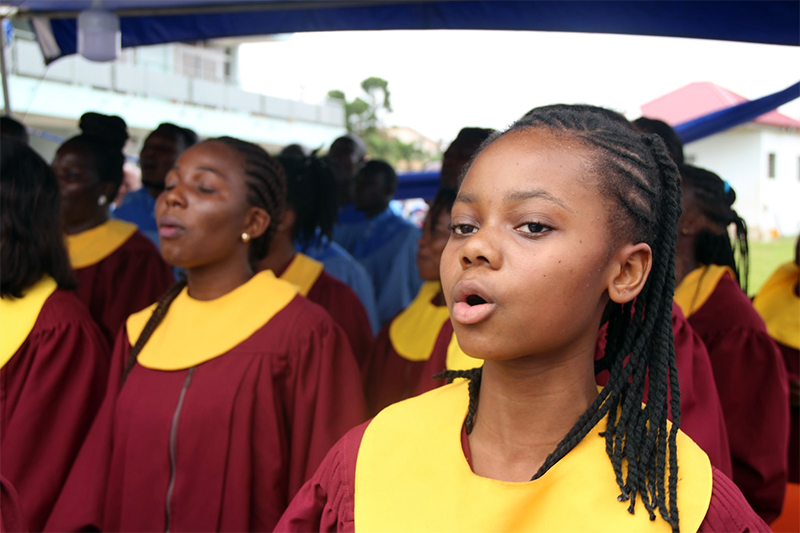
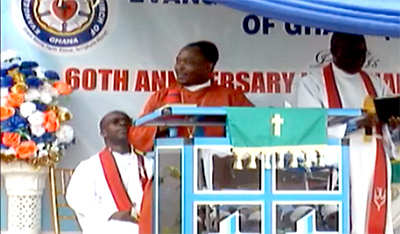
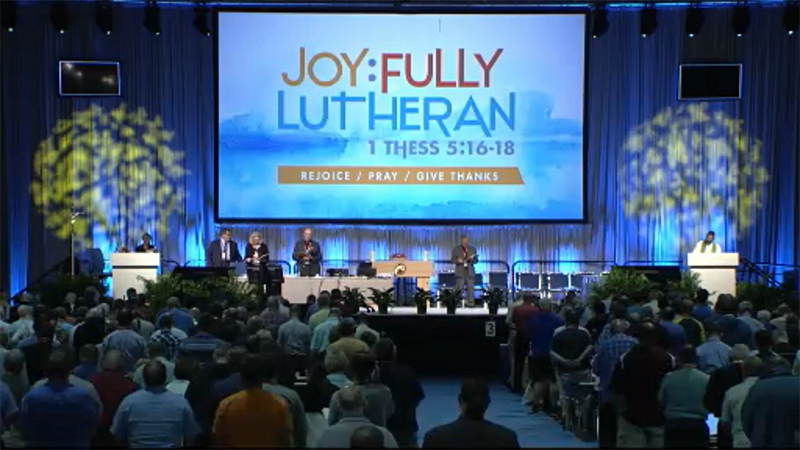
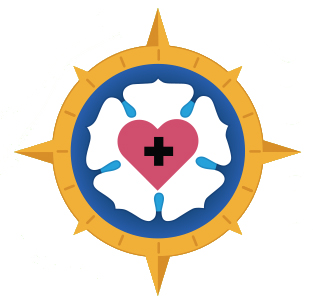 USA – The Lutheran Church—Missouri Synod (LCMS) has commended the work of the International Lutheran Council (ILC), pledging its continued support as the ILC expands its operations in service of confessional Lutheranism worldwide. The LCMS’ resolution came during the church’s 67th regular synodical convention, taking place in Tampa, Florida.
USA – The Lutheran Church—Missouri Synod (LCMS) has commended the work of the International Lutheran Council (ILC), pledging its continued support as the ILC expands its operations in service of confessional Lutheranism worldwide. The LCMS’ resolution came during the church’s 67th regular synodical convention, taking place in Tampa, Florida.